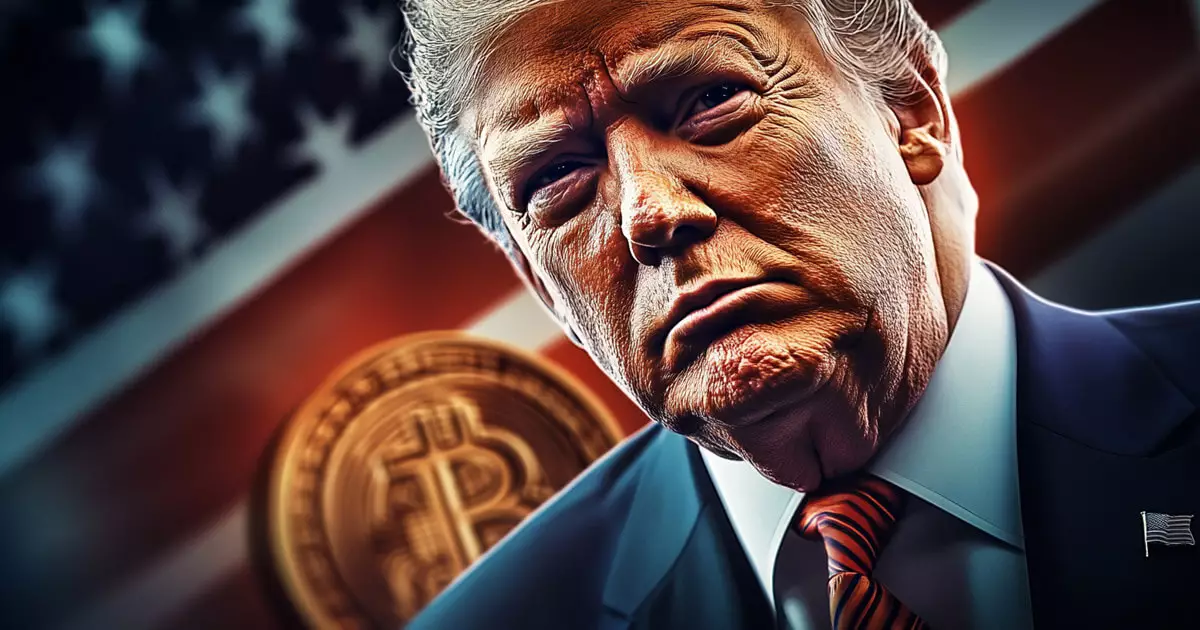Recent reports highlight a significant evolution in the approach taken by the Trump administration toward cryptocurrency regulation. Initially suggesting the formation of a formal crypto council intended to provide a structured framework for industry engagement, there are indications that the administration is leaning towards conducting informal summits with rotating representatives from the cryptocurrency sector. Such summits are expected to address a range of pressing policy issues, from nuances in Bitcoin mining to broader concerns impacting digital payments and data management.
This emerging strategy suggests a more agile and adaptable framework for discussing the complexities of cryptocurrencies. Although specifics are still unclear, the administration’s pivot appears to be a response to the multifaceted division within the crypto industry itself, which is characterized by clashing ideologies and varying business models. This fragmentation not only complicates regulatory discussions but also reflects the diverse interests and goals of stakeholders in this rapidly evolving sector.
The cryptocurrency landscape is inherently complicated, with centralization and decentralization ideologies often at odds. Bitcoin maximalists—who advocate exclusively for Bitcoin—find themselves in stark contrast to leaders of altcoin projects who embrace a broader spectrum of digital assets. Each faction possesses its own agenda, leading to a cacophony of voices that can complicate cohesive dialogue. Additionally, there are ongoing tensions between proponents of integrating cryptocurrencies into the traditional financial system and those advocating for a more detached, decentralized future.
By moving toward informal summits, the administration hopes to create a space where different elements of the industry can engage without the rigid structure of a formal council. While focusing discussions on specific themes allows for targeted insights—such as inviting miners to discuss mining regulations—the approach invites skepticism. Critics argue that such forums might be perceived as venue for evading deeper conflicts rather than promoting substantive policy creation.
Feedback from the cryptocurrency community regarding this transition is varied. While some stakeholders see merit in the informal approach as a pragmatic solution to facilitate expert discussions, others caution that it risks devolving into a mere information-gathering exercise lacking genuine regulatory intention. Skepticism is particularly pronounced in the wake of Trump’s past business endeavors in the crypto space, leading some to question whether the summits are motivated by political aspirations or personal financial advantages.
Indeed, Trump’s recent foray into the world of memecoins and involvement with decentralized finance (DeFi) projects raise eyebrows among industry veterans. The juxtaposition of his historical statements advocating for regulatory frameworks with his new informal summits casts doubt on his commitment to fostering genuine dialogue within the cryptocurrency landscape.
As this informal summits concept begins to take shape, the future of cryptocurrency policy in the United States remains uncertain. The intention to involve a mix of industry leaders—from influential exchanges to data firms—suggests a collaborative ambiance aimed at fostering dialogue around pressing concerns. However, the apparent departure from a formal advisory structure raises essential questions about the administration’s long-term vision for cryptocurrency governance.
With calls for clearer regulatory frameworks echoing throughout the industry, many are left to ponder whether these discussions will culminate in actionable policies or if they will merely serve as a forum for discourse devoid of meaning. The administration’s ability to translate the insights gleaned from these summits into effective regulations will determine whether the shift enriches the industry or simply complicates an already intricate landscape.
While the adaptation to a series of informal summits shows a potential easing of tensions and a more approachable framework, it emphasizes the need for a careful balance between open discussion and concrete policy-making. The upcoming dialogues within this structure must aim to establish meaningful pathways to regulation that consider the diverse perspectives embedded within the cryptocurrency ecosystem.

